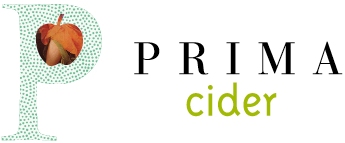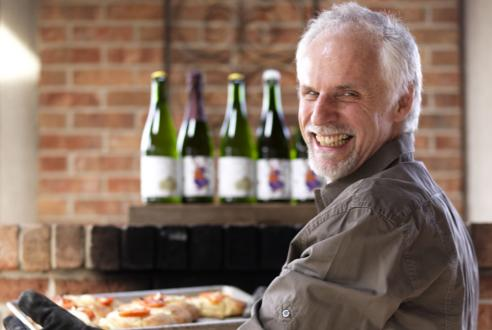Richard Bertsche of Prima Cider
The hard-cider sell
A Long Grove family brings its German tradition to the Chicago market.
By Julia Kramer as published in Time out Chicago 03/22/2012
“I kept saying, I betcha we could sell this stuff,” recalls Bertsche, who has been making cider in his basement for his family and friends for the past 30 years. “Finally, they said, you know, either shut up or put up.” He didn’t quit his day job—running the family business, Bertsche Engineering Corporation, which builds machining tools for companies like Boeing—but he did begin the pile of paperwork that would allow him to bottle, keg and sell his cider, under the Prima label.
“Prima in German means good,” says Bertsche, whose parents immigrated to the United States from southern Germany. The family returned to his grandparents’ house in Germany for a year when he was in fourth grade. “You’d go to school there and get out at lunch,” Bertsche remembers, “and I’d just drink what my grandfather was drinking, which was cider, which I didn’t know was really ‘hard.’ I just knew it was so strange I got so tired after lunch.” Bertsche passed this tradition of drinking dry, low-alcohol hard cider along to his three sons, Erich, Tristan and Martin.
The three sons are involved in the production of Prima’s two ciders: Most, which is a “farmhouse,” cold cellar–fermented cider; and Brut, which is a Champagne-style sparkling cider. Both are made with a blend of heirloom apples—such as Calville blanc d’hiver, Arkansas black, winesap, Ashmead’s kernel, golden russets and Brambley’s seedling—that are sourced from orchards in Wisconsin and Michigan. “For hard cider, you really don’t want to use a dessert apple,” Bertsche explains, referring to common table or eating apples like Red Delicious. “They don’t have the acidity or the tannins that you need.” Bertsche tests out heirloom varieties (he has 40 obscure apple trees—Dabinett, foxwhelp, Kingston black, Hughes’ crab—on his property for “research”), then combines juices from apples from along the sweet-to-bitter spectrum. “Unlike wine, cider benefits from having a wide blend of apples,” he says. Bertsche adds wine yeast to the juice (which has been pressed by apple growers in Michigan), allowing the sugars to ferment into alcohol for five to ten days. The dead-cell yeast is then discarded as the liquid is “racked” (transferred) to stainless-steel tanks stored in the cool cellar, where it continues to age for 8 to 12 weeks.
“This is still,” Erich says, pointing to the steel container, “which is hard to get because nobody likes to drink still. But that’s what I like the best.” The cider from those tanks is then transferred either to bottles or to bladder kegs for restaurants, where it begins a secondary fermentation, naturally and gently carbonating the cider sold as Prima Most. Prima Brut ferments in bottles for about a year longer, before the bottle is manipulated in the same fashion used for Champagne, blasting out the residual yeast, refilling the bottle with a dosage (a small amount of yeast and sugar) and allowing the cider to “mend” (rest) for 8 to 12 weeks.
The result—like other craft ciders entering this growing market—is a beverage that’s less sweet and more dry than the mainstream product most Americans are familiar with. In other words, selling it hasn’t been easy. Restaurants have been hesitant to embrace the stuff. “One guy thinks it’s horrible because it’s not sweet,” Bertsche says. “Another guy says it needs to have lots of carbonation. Another guy says it has to be as acidic as the Spanish ones.” The Bertsches take the feedback in stride—“that’s part of [the process],” Bertsche says—but they’re facing an uphill battle. “America doesn’t really have what I call a cider palate.”
Prima Cider is available on draft at the Publican (837 W Fulton Mkt, 312-733-9555) and Owen & Engine (2700 N Western Ave, 773-235-2930).

